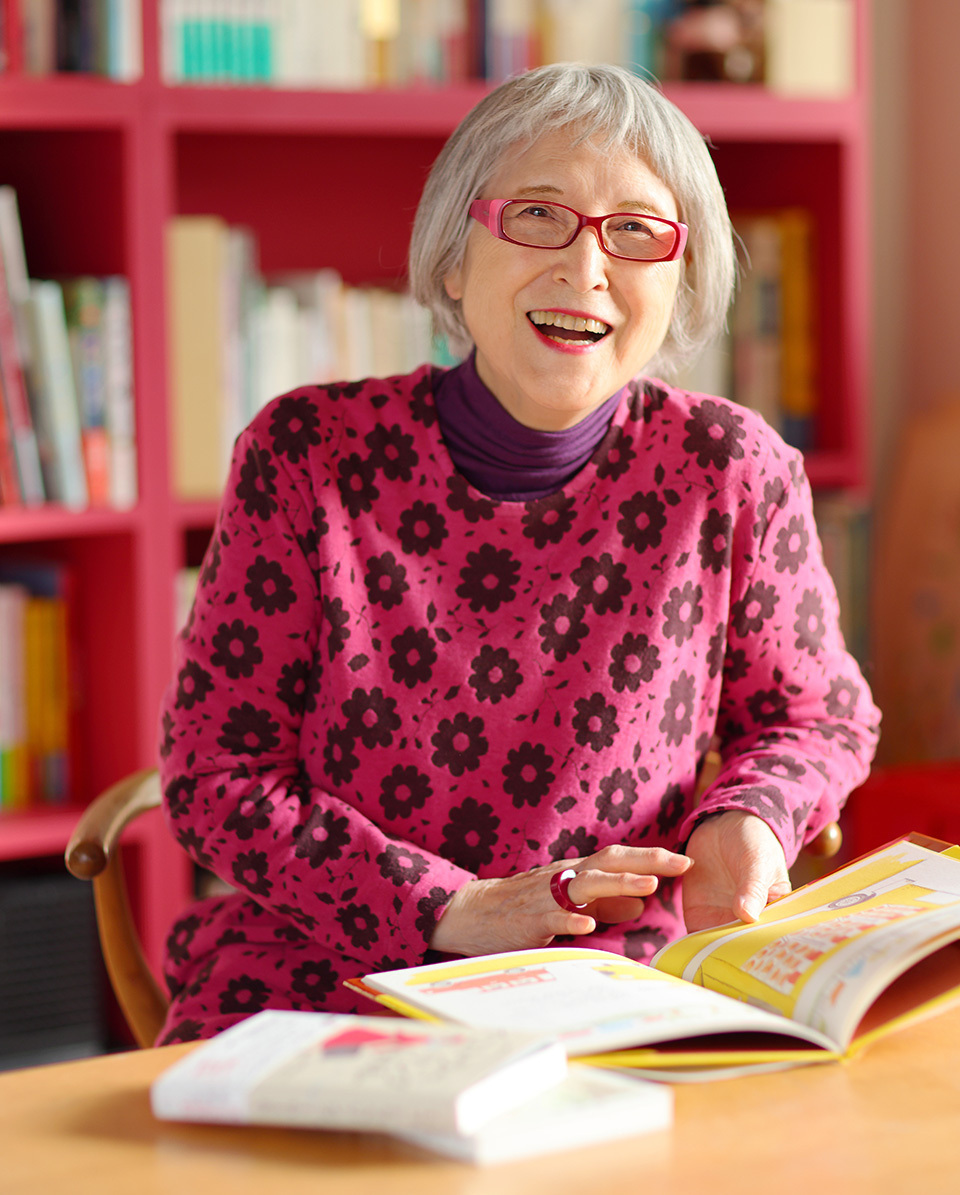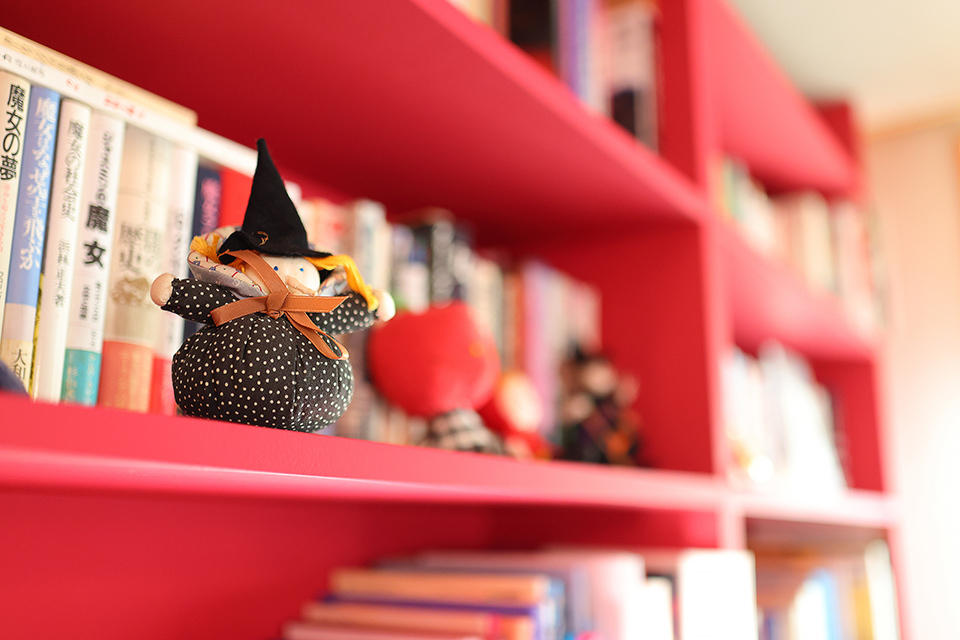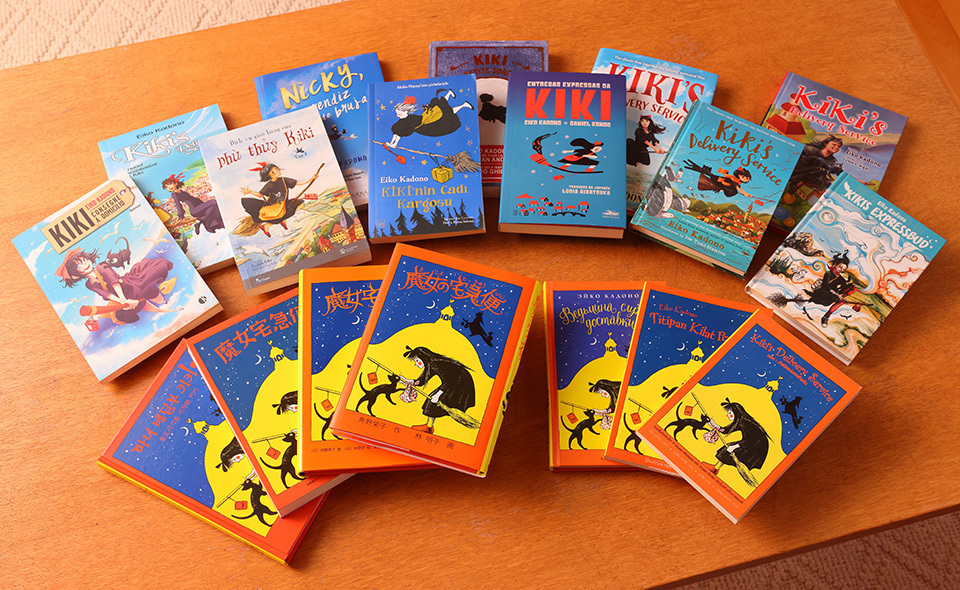KADONO Eiko, the author of children’s literature known around the world for Kiki’s Delivery Service, has created many works in reaction to a childhood experience that was constrained by the harshness of the times. Her works have magically empowered readers across generations and borders, but what was the inspiration behind her works?

KADONO Eiko began writing at the urging of her former university instructor. Her debut work in 1970 was based on her experience in Brazil. It was then that she realized the joy of writing.

Kadono decorates her home with witch-themed ornaments she has picked up on her travels across the globe.
Japanese children’s book writer KADONO Eiko believes that “everybody has a magical ability.” She said, “All people have something they’re good at or that they want to do. To find it, you have to do something you like every day. When a person does something they like, they shine and they can lead a life that is vibrant, not boring.”
Kadono’s magical ability is undoubtedly writing stories. When she made her writing debut, her daughter was still little, so she wrote on a drawing board hanging from her neck while engaged in her daily childrearing. “Writing for me gave me time to relax and be myself amid the daily grind of taking care of my child. I realized I’d found something good.” In the half-century or so since she began writing at the age of 34, Kadono has published over 250 works.

Kadono decorates her home with witch-themed ornaments she has picked up on her travels across the globe.
She added, “It’s not that I dislike tradition. What bothers me is having to go in one direction that somebody else has chosen against my will. I want to be the one making the decisions about myself. I guess most people who experienced a time of war when one couldn’t speak one’s mind probably think the same way.” In Kadono’s definitive work, Kiki’s Delivery Service, a young witch named Kiki leaves home and finds her own way as a witch, occasionally butting heads with tradition. When the book was adapted into an animated feature film, the story crossed the seas and gained worldwide recognition.

Kadono’s most celebrated work, Kiki’s Delivery Service*, has been translated into 17 languages, and has found loving readers across the world. “Every person who reads the book feels something different. I don’t stress my themes in my works, because I want readers to be free to interpret each theme as they wish.”
Surprisingly, Kadono has only recently produced works dealing with the subject of war. “I had wanted to write about the war I experienced, but I didn’t want to force an adult’s point of view on readers.” This is why she decided to write her first book about the topic, Tonneru no mori 1945 (Tunnel Forest, 1945), from the perspective of a 10-year-old child (Iko) living through a war. The follow-up story, Iko Traveling 1948-, was an autobiographical novel about the character’s life after the conflict.
Kadono’s books are always surprising, engaging, and empowering. She won recognition for her achievements in 2018, when she received the Hans Christian Andersen Award for Writing, which is also considered the “Little Nobel Prize.” A girl trying to start a career as a witch, a ghost of a little girl who wants to go to school, a girl who lives through the calamity of war, an old woman who travels on a motorcycle ... such women and girls, who take action and have a positive attitude, frequently appear in Kadono’s works, and their stories overlap with the author’s own.
Jumping into the wider world, untethering yourself, following your ambition, and finding the magic within you—helping readers across generations and borders find magic in themselves in such a way is the magic of Kadono’s works.

Edogawa Ward in Tokyo, where Kadono lived as a child, will open a museum in 2023 where visitors can learn about the author’s achievements, see the worlds of her works, and experience the wonder of children’s literature. Its nickname is “Kiki’s Museum of Literature.”

The museum will house around 9,000 works of children’s literature. Kadono focused on selecting short stories because she wants children visiting to have the experience of reading a whole book.
*Japanese edition published by Fukuinkan Shoten Publishers, Inc.


